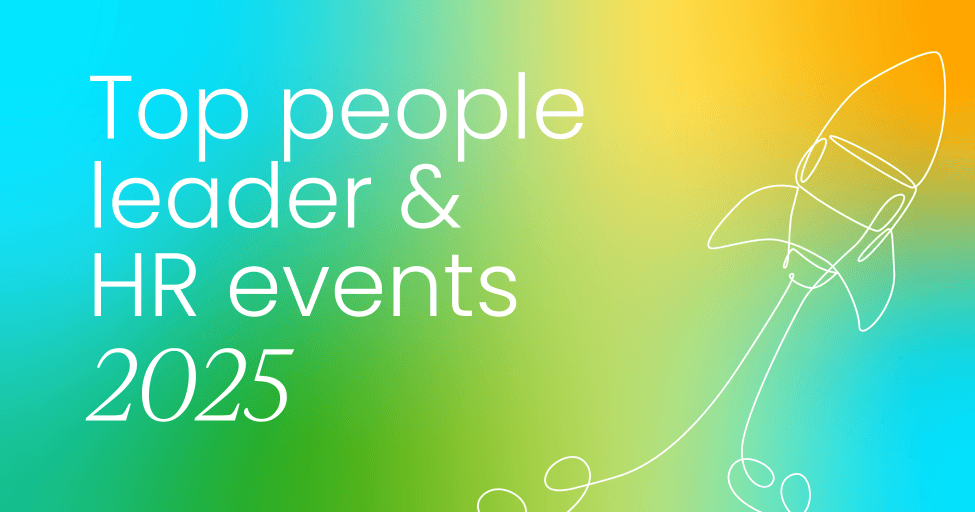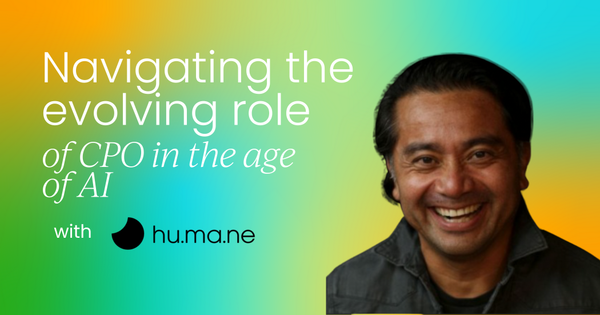In this article, José Benitez Cong, Chief People Officer at Humane, explores how AI is fundamentally transforming the HR landscape. Drawing from his 25+ years of experience adapting to technological change, he offers a unique perspective on how people leaders can not only survive but thrive during this fourth industrial revolution.
Jose argues that the key to success lies in "adaptation" – the willingness to change behavior to suit new purposes and situations. Through practical examples from his work at Humane, he demonstrates how AI tools can free HR professionals from administrative burdens, allowing them to focus on what truly matters: human connection and experience.
From creating a job description in minutes instead of weeks to building AI agents that transform how teams collaborate, he provides a roadmap for how Chief People Officers can position themselves and their organizations at the forefront of the AI revolution.
This article isn't just about AI technology – it's about reimagining the role of people leaders in a world where technology and humanity must work together more seamlessly than ever before.
The three industrial revolutions
If you allow me to take us on a history lesson, I would love to revisit everything that has happened through the previous three industrial revolutions.
From late 1700s to the mid-1800s, the innovation with steam engines allowed us to move from the country, from an agricultural-based society to one where we started to build cities, we started to build factories. Mechanization came about. The textile industry was probably the one that was mostly affected, which meant that weavers and artisans lost their jobs.
It meant that human resources for the agriculture industry started to become scarce because people were following the easier, higher-paying jobs in the factories. However, what we gained from this revolution were factory jobs, as well as the introduction of the railroad and the expansion of commerce.
If we think back and what we could have done to avoid some of the job losses and made it easier for this transition, it's pretty hard to fathom that there was anything that society could have done back then. We were living in a very agricultural-based distributed lifestyle where maybe education was not as strong a component where we could have foreseen and better prepared the individuals for the shift in employment.
The second industrial revolution bought us electricity. This came from the late 1800s to the early 1900s. As you can tell in terms of the length, it was a bit shorter, but it still took quite a bit of time for it to take effect.
Electricity allowed mass productions, allowed the assembly line, the Fordisms if you will, and expanded the ability for factories to be more efficient. Some of the jobs that we lost were skilled craftsmen. With the introduction of the automobile, the railroads became less desired. And there was quite a bit of employment loss in that industry.
Same thing with telegraph operators. With the invention of the telephone, less and less people were utilizing telegrams. However, on the upside of this revolution, the emergence of the engineers, the electricians, the auto workers, more than made up for it.
Could we have done something about it? Could we have made this transition a lot smoother? Probably, but we didn't.
If we move forward to more modern times, the digital revolution started somewhere roughly in the 1950s, and it lasted through the 1970s. And eventually, it evolved into the information age.
What was impactful about this revolution was the fact that semiconductors were invented. Computers came of age and automation took over at the factories. Individuals at the factories lost their jobs because machinery came in and did the jobs they were normally doing.
Secretaries and clerks lost their jobs because there was no need to dictate things onto a tug board. Everyone had a computer at their desk, and there was a lot more value in having a computer connected than it was in having a secretary.
However, the world wouldn't be what it is today without the emergence of the software engineering industry, IT, data analysis. And in many ways, I also think that our industry, the industry of human resources, the industry of talent and people, also expanded.
The reason being it became a lot easier for companies to be started. It became a lot simpler for companies to scale and grow. And therefore, there was a necessity in terms of not just finding and attracting talent, but also caring for that talent and growing that talent once they came on board.
Now could we have done something different? Probably, and we should have. But I think as a country, we've missed the boat. When we look at what the Europeans have done, in developing their educational system, to craft a large amount of researchers and PhDs in computing and technology, it falls in comparison to what we have done.
When we look at China, it really falls in comparison to what we have done. And when we look at what India continues to do, pretty hard lesson in terms of an opportunity missed during this revolution.

The fourth industrial revolution and its impact
But something else is coming – the fourth industrial revolution where AIs and robotics are starting to become present in everyday life today. And what does this mean in terms of impact?
Well, there are going to be roles that are going to disappear, and they're going to be disappearing at a rapid pace. Call centers are gonna be replaced by chatbots. Cashiers are gonna be replaced by automated machines that we are going to operate ourselves.
If we think about transportation, it's going to start with drivers. If you live in San Francisco, you're more than accustomed to seeing Waymo drive around without anybody behind the wheel. If you were visiting San Francisco for the first time, please, please, please, if you get a chance, use Waymo and get that experience for what the future is going to look like.
There is going to be a tremendous amount of impact, even to industries that in the past seemed untouchable. The white-collar roles are going to be impacted from lawyers to healthcare. Why? Because data is going to be easier to be processed at scale, and is gonna make it easier to allow a digital agent to do the work that is normally done by a human in those areas.
However, there's also tremendous opportunity for AI-related roles, for robotics-related roles, for cybersecurity and all the roles that we hadn't even began to think about to emerge.
And the lessons that we failed to apply at the previous revolution could be applied now. I think that as an industry, as chief people officers, we really need to start to look into how we change our approach.
How do we empower? How do we create opportunities to convert our current employee base into lifelong learners? How do we get them to start to understand that AI is not evil?
We are most likely not gonna lose our jobs in mass quantities to AI, but we are gonna lose the jobs to people who are proficient with AI. Why? Because it's going to make our roles in our organizations that much more efficient.



 Follow us on LinkedIn
Follow us on LinkedIn

